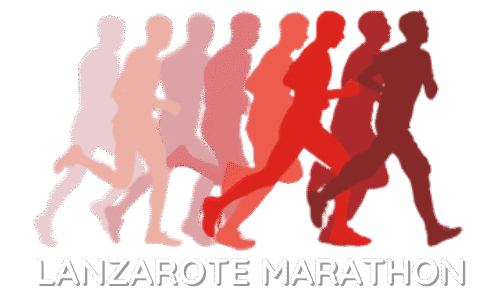
Best Recovery Foods After a Marathon: Achieve Optimal Healing and Performance
After completing a marathon, the body requires specific nutrients to aid recovery and replenish what has been lost during the race. ** Foods rich in carbohydrates, protein, and healthy fats play a crucial role in rejuvenating muscles and restoring energy levels.** Making informed choices about post-race meals can significantly impact an athlete’s recovery process and preparation for future workouts.
Hydration is also vital in the recovery phase. Replenishing fluids lost through sweat helps prevent dehydration and supports overall bodily functions. Incorporating electrolyte-rich options alongside nutritious foods can maximise the effectiveness of the recovery period.
Exploring the best recovery foods can enhance an individual’s ability to bounce back stronger. Effective nutrition strategies not only aid physical recovery but also prepare the mind for the next challenge ahead.
Why Nutrition Is Vital After a Marathon
Proper nutrition is critical for recovery after a marathon. It aids in replenishing energy stores, repairing muscles, and supporting the immune system. The following points elaborate on these essential aspects.
The Role of Recovery Nutrition
Recovery nutrition plays a significant role in restoring the body’s balance after a marathon. Post-race, the focus should be on a recovery meal that includes a blend of carbohydrates and protein.
Key components:
- Carbohydrates: These replenish glycogen stores depleted during the run. An intake of 1.0 to 1.5 grams of carbohydrates per kilogram of body weight in the first 30 minutes post-race is ideal.
- Protein: Incorporating protein aids in muscle repair. A dose of 20-25 grams of protein along with carbohydrates helps enhance muscle recovery.
Hydration is equally crucial. Replenishing fluids lost during the marathon can significantly impact the recovery process and performance in future events.
Understanding Glycogen Depletion
Glycogen is the body’s primary energy source during prolonged endurance events like marathons. As the muscles utilise glycogen, stores become significantly depleted, leading to fatigue.
To optimise recovery, it is essential to consume carbohydrates soon after finishing. Replenishing glycogen stores can accelerate the recovery timeline.
Recommended intake:
- Aim for a high-glycaemic index carbohydrate post-race, such as white rice, bananas, or energy gels. This will facilitate rapid glycogen restoration.
Monitoring carbohydrate intake is vital. Insufficient replenishment can result in prolonged fatigue and decreased performance in subsequent training sessions.
Supporting Muscle Repair and Immune Function
Muscle repair is vital after the stresses of a marathon. Protein intake is crucial for rebuilding muscle fibres.
Important factors:
- Consuming a source of high-quality protein, like chicken, fish, or legumes, can promote muscle recovery.
- Consuming protein alongside carbohydrates maximises muscle repair and glycogen replenishment.
In addition to whole foods, some endurance athletes explore emerging recovery-support strategies that focus on cellular health and tissue repair. Peptide-based formulations, such as those available through https://www.rebelpeptides.com/, are part of the growing conversation around advanced recovery approaches. These options are typically considered complementary to a strong nutritional foundation rather than a substitute for balanced post-race meals.
Hydration also supports immune health, so maintaining fluid intake is essential. A well-rounded approach to recovery nutrition can significantly reduce injury risk and aid overall health.
Key Recovery Foods for Post-Marathon Success
Proper recovery after a marathon is essential for replenishing energy and repairing muscles. Focusing on the right foods will aid in restoring glycogen stores, providing protein for muscle repair, and offering antioxidants to reduce inflammation.
Carbohydrate-Rich Foods to Restore Glycogen
Carbohydrates are vital for replenishing glycogen stores that deplete during endurance events. Foods such as whole grains, fruits, and starchy vegetables are excellent choices. Each provides a quick source of energy and essential nutrients.
- Quinoa: A whole grain that is high in carbohydrates and also offers protein.
- Bananas: Rich in carbohydrates and potassium, helping with muscle function.
- Sweet Potatoes: Provide a good balance of carbohydrates, vitamins, and minerals.
These foods support quick recovery by replenishing energy levels and preparing the body for future training.
High-Quality Protein Sources
Protein plays a crucial role in muscle recovery post-marathon. It helps repair and build muscle tissues that were stressed during the run. Incorporating high-quality protein sources is essential.
- Chicken Breast: A lean source that is low in fat and high in protein.
- Greek Yoghurt: Offers protein and probiotics, beneficial for gut health.
- Cottage Cheese: High in casein protein, which digests slowly, providing a sustained release of amino acids.
Including these in post-race meals can significantly enhance recovery.
Healthy Fats and Antioxidants
Healthy fats and antioxidants are equally important in the recovery process. They help reduce inflammation and promote overall health. Foods rich in healthy fats should be included for optimal recovery.
- Nuts and Seeds: Almonds and chia seeds provide both healthy fats and protein.
- Avocado: It contains monounsaturated fats and is also rich in vitamins.
- Blueberries: Known for their high antioxidant content, they help combat oxidative stress.
Integrating these foods supports cellular repair and reduces muscle soreness.
Top Foods for Optimal Recovery
For optimal recovery, incorporating a variety of nutrient-dense foods is beneficial. A balanced post-marathon meal can contain a mix of carbohydrates, proteins, and healthy fats.
- Smoothies: Combining fruits, greens, and protein powder can create an easy-to-digest meal.
- Oatmeal with Berries: Offers carbohydrates, fibre, and vitamins, perfect for recovery.
- Hummus with Veggies: A blend of protein, healthy fats, and fibre, aiding muscle repair.
These choices provide a comprehensive recovery strategy to support the body’s needs after intense exertion.
Hydration and Electrolyte Replenishment
Proper hydration and electrolyte balance are crucial for recovery after a marathon. After extensive exertion, the body needs fluids and essential minerals to restore energy levels and support muscle function.
Importance of Staying Hydrated
Staying hydrated post-marathon is essential for effective recovery. Dehydration can lead to fatigue, muscle cramps, and impaired cognitive function.
Water is the foundation of hydration, helping to transport nutrients, regulate body temperature, and maintain joint lubrication. It is essential to drink water regularly during recovery.
For optimal hydration, it is recommended to consume fluids that replace both water and lost electrolytes. A balanced approach ensures that the body can recover adequately and perform at its best in future events.
Choosing the Right Fluids
Not all fluids are created equal for post-marathon recovery. Water is vital, but relying solely on it may not suffice for those who have perspired heavily.
Sports drinks or isotonic drinks, containing carbohydrates and electrolytes, can be beneficial. They help replenish what has been lost through sweat and provide a quick energy source.
Green tea is another option, offering antioxidants that can aid recovery. It also encourages hydration without added sugars.
When selecting fluids, consider those with minimal added sugars and a balanced electrolyte profile to maximise recovery.
Balancing Electrolytes After Endurance Events
During prolonged physical activity, the body loses significant electrolytes, including sodium, potassium, and magnesium. Replenishing these is critical for muscle function and overall recovery.
Post-race, it is important to incorporate foods and drinks high in electrolytes. Options such as bananas, coconut water, and specific sports drinks can effectively restore balance.
Monitoring urine colour can also serve as a guideline for hydration status. A light, pale shade indicates proper hydration levels, while a darker colour suggests a need for increased fluid intake.
Prioritising electrolyte balance helps in reducing the risk of cramping and improves overall recovery efficiency.
Planning Your Marathon Recovery Nutrition
Proper nutrition planning after a marathon is crucial for recovery. This involves ensuring optimal timing, personalising the nutrition approach, and consulting with a sports dietitian for tailored advice.
Timing Your Recovery Meal
Timing plays a significant role in recovery nutrition. It is generally recommended to consume a recovery meal within 30 to 60 minutes post-race. This time frame is ideal for maximising glycogen replenishment and muscle repair.
A recovery meal should focus on a combination of carbohydrates and protein. For instance:
- Carbohydrates: Aim for 1 to 1.5 grams of carbs per kilogram of body weight.
- Protein: Include 10 to 20 grams of protein.
Food options could include a protein smoothie, a banana with nut butter, or a whole grain sandwich with turkey.
Personalising Your Nutrition Plan
Every runner’s nutritional needs will vary based on factors such as body weight, metabolism, and specific training goals. A personalised nutrition plan should consider these factors while also addressing individual preferences and intolerances.
Incorporating a variety of foods that provide consistent energy is key. Whole grains, lean proteins, and healthy fats should be staples in their post-marathon diet. Additionally, monitoring energy levels and making adjustments to the plan can help optimise recovery.
Creating a list of preferred post-run meals can streamline the recovery process. This list can include items like:
- Quinoa salad with vegetables
- Greek yoghurt with berries
- Lean beef or turkey stir-fry
Seeking Guidance from a Sports Dietitian
Consulting a sports dietitian can provide valuable insights into refining a nutrition plan. A qualified professional can assess nutritional habits and suggest specific adjustments based on the runner’s needs and performance.
This expertise can be particularly beneficial when considering macronutrient distribution and meal timing strategies. A sports dietitian may also recommend supplements if necessary, ensuring they are suitable for the athlete’s lifestyle and goals.
Accessing tailored advice can ensure the athlete not only recovers effectively but also prepares better for future races.
